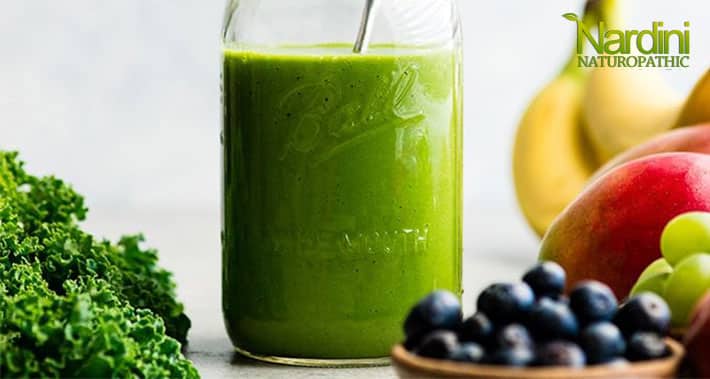The thyroid is a small gland which plays a crucial role in your body.
When it’s not working properly, it can affect everything from your metabolism to your heart rate, which makes seeking thyroid health solutions incredibly important for imbalances in thyroid hormones.
I’m Dr. Pat Nardini, ND, a naturopathic doctor in Toronto, and I want to share with you information today about a thyroid condition called thyroid storm, how to recognize it, and what to do about it.
Keep reading to learn more.
What Is Thyroid Storm?
Thyroid storm is a health condition related to hyperthyroidism – left untreated it can be life-threatening.
Hyperthyroidism is a condition in whichyour thyroid, a small, butterfly-shaped gland at the front of the neck, produces too many thyroid hormones.
These hormones, triiodothyronine (T3) and thyroxine (T4), control your body’s metabolism.
When you have too much of these hormones, your cells go into overdrive and work too quickly.
Thyroid storm occurs when hyperthyroidism causes your blood pressure, heart rate, and body temperature to skyrocket, and requires immediate medical attention; otherwise, it can be fatal.
What Causes Thyroid Storm?
Not every person who has hyperthyroidism will develop thyroid storm, as it develops in individuals who aren’t getting proper treatment for their thyroid condition (untreated or under-treated).
Individuals with hyperthyroidism are at risk of developing thyroid storm when they encounter the following conditions:
- Stroke
- Surgery
- Trauma
- Emotional distress
- Congestive heart failure
- Diabetic ketoacidosis
- Pulmonary embolism
Symptoms Of Thyroid Storm
Because thyroid storm stems from hyperthyroidism, the symptoms are similar.
They will be more extreme however, with a much faster onset.
Symptoms to watch out for include:
- Tachycardia (extremely high heart rate, over 140 beats per minute)
- Irregular heartbeat
- High fever
- Constant sweating
- Shaking
- Agitation
- Confusion
- Diarrhea
- Restlessness
- Loss of consciousness
What To Do If Someone Has Thyroid Storm
If someone is experiencing thyroid storm, they will require immediate medical assistance.
According to the journal Acute Medicine and Surgery, without treatment, the mortality rate of thyroid storm is incredibly high – 80 to 100%.
Proper treatment can reduce those levels to 10% to 50%.
How To Prevent Thyroid Storm
Although it’s good to get medical treatment if you’re experiencing thyroid storm, by far the better option is to avoid it in the first place.
As the mortality rates for thyroid storm are quite high, the best course of action is to avoid it through the management and proper treatment of hyperthyroidism and related conditions.
Keep reading to learn about measures you can take to prevent thyroid storm.
1. Get Your Hyperthyroidism Diagnosed
If you are experiencing symptoms which are linked to hyperthyroidism, the first step to managing them is to get a diagnosis.
Confirming your symptoms allows you to know if you are dealing with hyperthyroidism or something else, which will guide the rest of your treatment options.
Things to watch out for include:
- Anxiety and nervousness
- Insomnia
- Fast heart rate
- Tremors
- Thinning hair
- Mood swings and irritability
- Unexplained weight loss
- Enlarged thyroid gland
- Menstrual cycle irregularities
2. Avoid Hyperthyroid Foods
Individuals with hyperthyroidism, until it is treated, should avoid foods with iodine as it can cause the thyroid to produce excess thyroid hormones.
Some foods to avoid include:
- Iodized salt
- Fish
- Dairy products
- Egg yolks
- Seaweed and kelp
- Foods containing red dye
- Blackstrap molasses
If your hyperthyroidism is a result of an autoimmune condition, avoidance of these foods is especially important.
3. Eat A Hyperthyroid Diet
Eat the following to help manage your hyperthyroidism:
- Anti-inflammatory herbs and spices, such as turmeric, rosemary, basil, and oregano.
- Green juices, especially those including spinach, spirulina, and kale
- Bone Broth – this helps with leaky gut syndrome
- Low iodine foods, including black tea and unsalted nuts(at least until your hyperthyroidism is under control)
- Cruciferous vegetableslike Brussels sprouts, collard greens, cauliflower, and bok choy
- Selenium rich foods such as brazil nuts, rice, and chicken
- Iron-rich foods including fortified cereals, raisins, dark chocolate, and lentils
Recovering From Thyroid Storm
If you or someone you know experiences a thyroid storm, there are two potential medical treatments.
Either you will be treated with radioactive iodine which attacks and suppresses the thyroid, or it will be removed completely in a thyroidectomy.
If your thyroid is removed completely, it’s final – you will need to take thyroid hormone supplements for the rest of your life.
However, if your treatment involves radioactive iodine, then you will need to be careful to take measures to manage your hyperthyroidism.
Book An Appointment At Nardini Naturopathic
Are you worried you might have a thyroid condition?
Did you read about the symptoms of hyperthyroidism and nod your head thinking “this might explain what I’m going through”?
I’m Dr. Pat, a naturopath in Toronto with a special interest in treating thyroid conditions.
If you are worried you might have a thyroid condition, or if you have already been diagnosedand are looking for natural solutions to help manage your symptoms, then contact me, Dr. Pat today for a free 15-minute consultation.
I will listen to your concerns and help you understand how naturopathic medicine can help you to manage your thyroid condition.
Contact me today and take control of your thyroid health.
If you have questions about naturopathic medicine, or you’d like to take your first step into the world of naturopathy, contact us at Nardini Naturopathic, and let’s book an appointment.
Yours in health,
Dr. Pat Nardini, Naturopathic Doctor
320 Danforth Ave suite 206,
Toronto, ON, M4K 1N8
-https://g.page/NardiniNaturopathicDanforth
Dr. Pat Nardini, ND is a licensed doctor of naturopathic medicine in Toronto, Ontario. He offers science based natural health solutions with a special focus on thyroid conditions.

